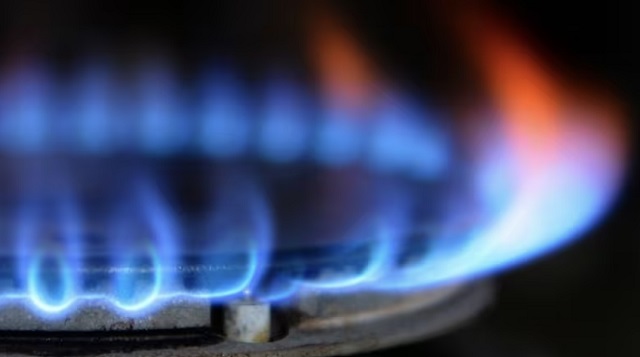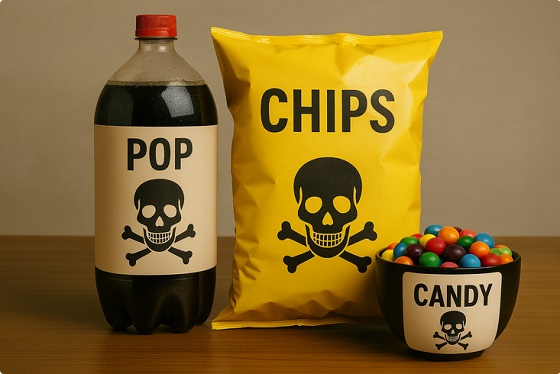Alberta
Trudeau is punishing Albertans this Autumn

From the Canadian Taxpayers Federation
Author: Kris Sims
The colder weather is here. Albertans are making dinners and heating our homes against the chill this Autumn.
Nourishing and normal things, such as preparing a holiday meal and staying warm, are now financially punishable offenses.
Prime Minister Justin Trudeau’s two carbon taxes make driving to work, buying food and heating our homes cost much more.
As one of the Trudeau government consultants that drafted the legislation stated, the carbon tax is meant to “punish the poor behaviour of using fossil fuels.”
The first carbon tax adds 14 cents per litre of gasoline and 17 cents per litre of diesel. This costs about $10 extra to fill up a minivan and about $16 extra to fill up a pickup truck.
The carbon tax on diesel costs truckers about $160 extra to fill up the tanks on big-rig trucks.
The second carbon tax is a government fuel regulation that fines companies for the carbon in fuels. Those costs are passed down to drivers at the pump.
Trudeau fashioned his second carbon after British Columbia’s. B.C. drivers have been paying two carbon taxes for years, and it’s a key reason why they pay the highest fuel prices in North America, usually hovering at about $2 per litre. Trudeau wants to make Vancouver gas prices as commonly Canadian as maple syrup.
Trudeau imposed his second carbon tax this Canada Day. It’s not clear yet how much the second carbon tax costs for a litre of gasoline and diesel in Alberta. In Atlantic Canada, the second carbon tax tacks an extra four to eight cents per litre of fuel.
That big tax bill is only getting bigger because Trudeau is cranking up his carbon tax every year for the next seven years.
By 2030, Trudeau’s two carbon taxes will cost an extra 55 cents per litre of gasoline and 77 cents per litre of diesel, plus GST. Filling up a big rig truck with diesel will cost about $760 extra.
In seven years, average Albertans will pay more than $3,300 per year because of Trudeau’s two carbon taxes even after rebates.
Ordinary people pay Trudeau’s carbon taxes every day. So do truckers. So do farmers.
Remember the Thanksgiving turkey? Turkeys eat grain which is hit by the carbon tax when it goes through the grain dryer. Turkeys are raised in heated barns, which is carbon taxed, and the trucks hauling them from the slaughterhouse to the grocery store get carbon taxed, too. That’s how the carbon tax makes food cost more.
The Parliamentary Budget Officer reports the carbon tax will cost Canadians farmers close to $1 billion by 2030.
But it’s not just transportation and food that gets hit with the Trudeau’s carbon tax.
Home heating is punished too. The current carbon tax costs 12 cents extra per cubic metre of natural gas, 10 cents extra per litre of propane and 17 cents extra per litre of furnace oil.
An average Alberta home uses about 2,800 cubic metres of natural gas per year, so the carbon tax will cost them about $337 extra to heat their home. Costs are similar for propane and furnace oil.
Home heating is essential for a place like Alberta.
Punishing Canadians with a carbon tax is pointless and unfair.
It’s pointless because the carbon tax won’t fix climate change. As the PBO has noted, “Canada’s own emissions are not large enough to materially impact climate change.”
It’s unfair because ordinary people who are driving to work, buying food for their families and heating their homes are backed into a corner. Carbon tax cheerleaders tell them to “switch.”
Switch to what?
What abundant, reliable, affordable alternative energy source is available to Albertans? This isn’t like choosing between paper or plastic bags, this is about surviving the winter and affording food, or not.
Albertans should not be punished for staying warm and feeding our families.
Alberta
Emissions Reduction Alberta offering financial boost for the next transformative drilling idea

From the Canadian Energy Centre
$35-million Alberta challenge targets next-gen drilling opportunities
‘All transformative ideas are really eligible’
Forget the old image of a straight vertical oil and gas well.
In Western Canada, engineers now steer wells for kilometres underground with remarkable precision, tapping vast energy resources from a single spot on the surface.
The sector is continually evolving as operators pursue next-generation drilling technologies that lower costs while opening new opportunities and reducing environmental impacts.
But many promising innovations never reach the market because of high development costs and limited opportunities for real-world testing, according to Emissions Reduction Alberta (ERA).
That’s why ERA is launching the Drilling Technology Challenge, which will invest up to $35 million to advance new drilling and subsurface technologies.
“The focus isn’t just on drilling, it’s about building our future economy, helping reduce emissions, creating new industries and making sure we remain a responsible leader in energy development for decades to come,” said ERA CEO Justin Riemer.
And it’s not just about oil and gas. ERA says emerging technologies can unlock new resource opportunities such as geothermal energy, deep geological CO₂ storage and critical minerals extraction.
“Alberta’s wealth comes from our natural resources, most of which are extracted through drilling and other subsurface technologies,” said Gurpreet Lail, CEO of Enserva, which represents energy service companies.
ERA funding for the challenge will range from $250,000 to $8 million per project.
Eligible technologies include advanced drilling systems, downhole tools and sensors; AI-enabled automation and optimization; low-impact rigs and fluids; geothermal and critical mineral drilling applications; and supporting infrastructure like mobile labs and simulation platforms.
“All transformative ideas are really eligible for this call,” Riemer said, noting that AI-based technologies are likely to play a growing role.
“I think what we’re seeing is that the wells of the future are going to be guided by smart sensors and real-time data. You’re going to have a lot of AI-driven controls that help operators make instant decisions and avoid problems.”
Applications for the Drilling Technology Challenge close January 29, 2026.
Alberta
New era of police accountability

The Police Review Commission (PRC) is now fully operational, giving Albertans a single, independent process to file policing complaints and ensure accountability.
Alberta’s government is putting the province at the forefront of police oversight in Canada with the creation of the PRC. This new commission replaces the current patchwork of police investigating police with one independent body responsible for receiving complaints, conducting investigations and overseeing disciplinary hearings. By centralizing these functions within a single, independent agency, Alberta is ensuring complaints are handled fairly and consistently.
“The Police Review Commission represents a new era in how Alberta addresses policing complaints. These changes are part of a broader paradigm shift where police are no longer seen as an arm of the state, but rather an extension and a reflection of the community they serve. As an independent agency, it is committed to fairness, accountability and public trust, ensuring every complaint is investigated impartially and resolved openly.”
The Police Amendment Act, 2022 laid the groundwork for this new model, establishing a modern approach to oversight built on accountability, consistency and public confidence. The PRC will manage the full complaints process from receiving and assessing, to investigating and resolving complaints related to police conduct, including serious incidents and statutory offences.
“The Alberta Association of Chiefs of Police welcomes the launch of the Police Review Commission as a meaningful step toward enhanced oversight and greater transparency in policing. By ensuring complaints are reviewed fairly and impartially, the Commission will help strengthen accountability and reinforce public trust in Alberta’s police agencies. Police leaders across the province are committed to working with the Commission and our communities to ensure every Albertan has confidence in the integrity of our police services.”
A timely and transparent complaint resolution process is essential for both the public and police. That is why the PRC must complete investigations within 180 days, and if more time is needed, the chief executive officer must publicly report on delays and provide justification. This ensures clarity, predictability and accountability throughout the process. The commission will be arm’s length from government and police services, meaning people can have greater confidence that their complaints will be investigated and resolved impartially.
“Our goal is to build trust in policing by delivering timely resolutions and fair, consistent outcomes that put people first. Every complaint will be reviewed thoroughly and handled with the transparency and respect Albertans expect and deserve.”
The PRC can also initiate systemic reviews related to police conduct or emerging trends without the need for a public complaint, and these reviews must be made public. Together, these measures create a clear, accountable process that strengthens transparency, supports continuous improvement and enhances trust in how police oversight is carried out across Alberta.
“Public safety and the confidence the public has in our police services and service members are incumbent for effective and responsible service delivery. The PRC has been developed so that Albertans may have a responsible and impartial mechanism to voice concerns regarding delivery of policing services in Alberta. I am confident that the PRC will be an inclusive and diverse representation of the communities, so we may better understand the most appropriate and effective way to respond to concerns regarding police services. I look forward to the positive outcomes for the community.”
The commission’s design was informed by engagement with Indigenous communities, law enforcement partners, municipal officials and community organizations, ensuring its structure and training reflect Alberta’s diversity and values.
Quick facts
- The PRC will handle complaints in three categories:
- Level 1: Death, serious injury and serious or sensitive allegations involving all police services in Alberta, as well as peace officer agencies.
- Level 2: Allegations of criminal and other statutory offences involving all police services in Alberta.
- Level 3: Complaints about non-criminal misconduct involving officers employed by municipal and First Nations police services.
- Complaints that fall outside the three categories will be referred to the appropriate bodies or agencies for review.
- The Alberta Serious Incident Response Team (ASIRT) will now operate under the PRC.
-

 Energy1 day ago
Energy1 day agoCanadians will soon be versed in massive West Coast LPG mega-project
-

 Alberta2 days ago
Alberta2 days agoKeynote address of Premier Danielle Smith at 2025 UCP AGM
-

 Alberta2 days ago
Alberta2 days agoNet Zero goal is a fundamental flaw in the Ottawa-Alberta MOU
-

 Food2 days ago
Food2 days agoCanada Still Serves Up Food Dyes The FDA Has Banned
-

 Addictions2 days ago
Addictions2 days agoManitoba Is Doubling Down On A Failed Drug Policy
-

 Daily Caller1 day ago
Daily Caller1 day agoTom Homan Predicts Deportation Of Most Third World Migrants Over Risks From Screening Docs
-

 C2C Journal22 hours ago
C2C Journal22 hours agoLearning the Truth about “Children’s Graves” and Residential Schools is More Important than Ever
-

 National24 hours ago
National24 hours agoMedia bound to pay the price for selling their freedom to (selectively) offend




